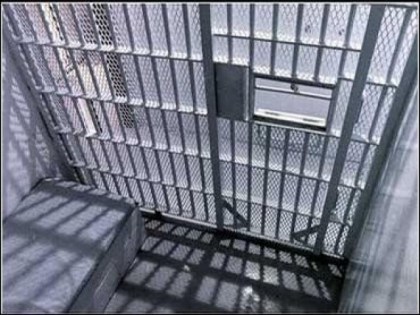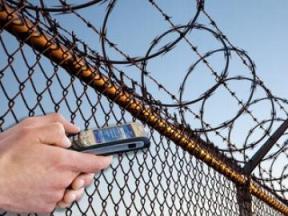 As we have noted before, the problem of smuggled cell phones in prison is a global one. In a Jakarta prison, cell phone jammmers are being installed to stop drug smuggling. Contraband cell phones and drugs are the two most smuggled items into jails. Apparently, the Jakarta prison authorities believe one is smuggled into prison in order to facilitate the smuggling of the other.
As we have noted before, the problem of smuggled cell phones in prison is a global one. In a Jakarta prison, cell phone jammmers are being installed to stop drug smuggling. Contraband cell phones and drugs are the two most smuggled items into jails. Apparently, the Jakarta prison authorities believe one is smuggled into prison in order to facilitate the smuggling of the other.
Interestingly however, an inmate is quoted as saying, “Prison authorities could do little to ban the use of cell phones, as the government failed to provide sufficient means of communication, such as public phones, to the thousands of inmates incarcerated across the nation.” As with the use of drugs, contraband cell phones have a demand element as well as a supply element. Only addressing the supply side is short-sighted. Clearly it hasn’t worked in the war on drugs. And we don’t believe it will work in the war on contraband cell phones.
Officials say they will soon complete installation of a cellular phone jamming system at Cipinang Penitentiary in East Jakarta to halt the drug trade inside the maximum-security prison.
“We all know that drug trafficking inside the prison’s walls has been possible due to inmates’ access to devices that enable them to communicate with the outside world,” Law and Human Rights Ministry spokesman Martua Batubara told The Jakarta Post on Sunday.
“We’re therefore installing this jamming system to prevent inmates from engaging in the drug business,” Martua said.
“Inmates always find ways to smuggle cellular phones into their cells, so we have to make sure that they are not going to be able to use those phones once the devices are inside the facility,” he added.
The ministry’s corrections directorate and telecommunication company PT Telkom started installing the system, known as the Correctional Telecommunication System (Stepas), in September.
Once active, the system will also affect mobile phones used by prison guards and the staff of the correctional facility.
“The prison guards and staffers will communicate using office phones,” he said.
The system has been designed to prevent interference with the radio system used by state railway operator PT KAI to monitor trains.
In-prison drug trafficking is rampant in the nation’s penal system.
Recently, the National Police’s narcotics division uncovered an international drug ring controlled by an inmate incarcerated in Indonesia’s “Alcatraz”, Nusakambangan Penitentiary, in Cilacap, Central Java.
A former Cipinang inmate who wished to remain anonymous recently told the Post that the prison was effectively a university for drug traffickers, helping small-time and medium-sized dealers improve their skills to become major players in the business.
The inmate also said that a lucrative drug trade took place inside the prison’s cells, involving almost everyone in the facility, including the prison guards, and that the widespread availability of illegal cellular phones made it easy for drug dealers to continue operating.
Prison authorities could do little to ban the use of cell phones, the inmate said, as the government failed to provide sufficient means of communication, such as public phones, to the thousands of inmates incarcerated across the nation.
Separately, University of Indonesia criminologist Adrianus Meliala said the installation of the signal jamming system was a tacit admission by the Law and Human Rights Ministry that it could not maintain discipline within the nation’s penal system.
“The ministry know that some of its prison officials are ‘dirty’ and that the smuggling of cellular phones into correctional facilities is inevitable,” Adrianus said.
“The ministry is trying to add another layer of security by installing the jammers inside the prison compound,” he added.
Adrianus said he doubted that the ministry would be able to consistently uphold its policy on the phone signal jammers.
“This policy is not a new one. This is an old policy that had been implemented earlier. For some reasons, the ministry scrapped the old one and is now trying to revive it,” he said.
The ministry had previously adopted a similar system at Nusakambangan Penitentiary.
The main problem was with the ministry: It came up with a good policy only to subsequently scrap it, he added.
- Multi-Blockchain System for Inmate Forensics - April 2, 2024
- Blockchain to Secure Attorney-Inmate Privacy for Prison Calls - June 28, 2023
- meshDETECT® Announces Grant of Ninth Patent For Blockchain Wireless Services - August 26, 2022




